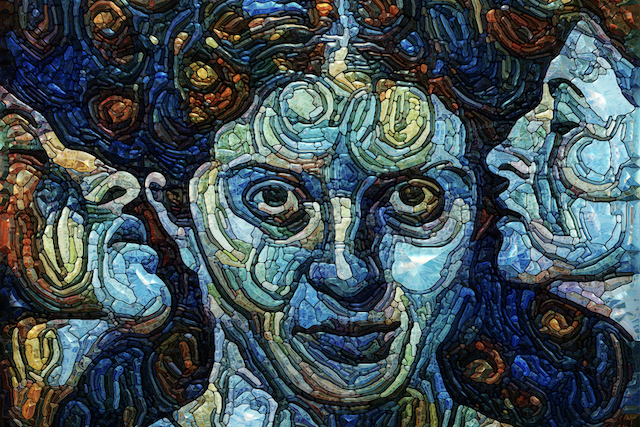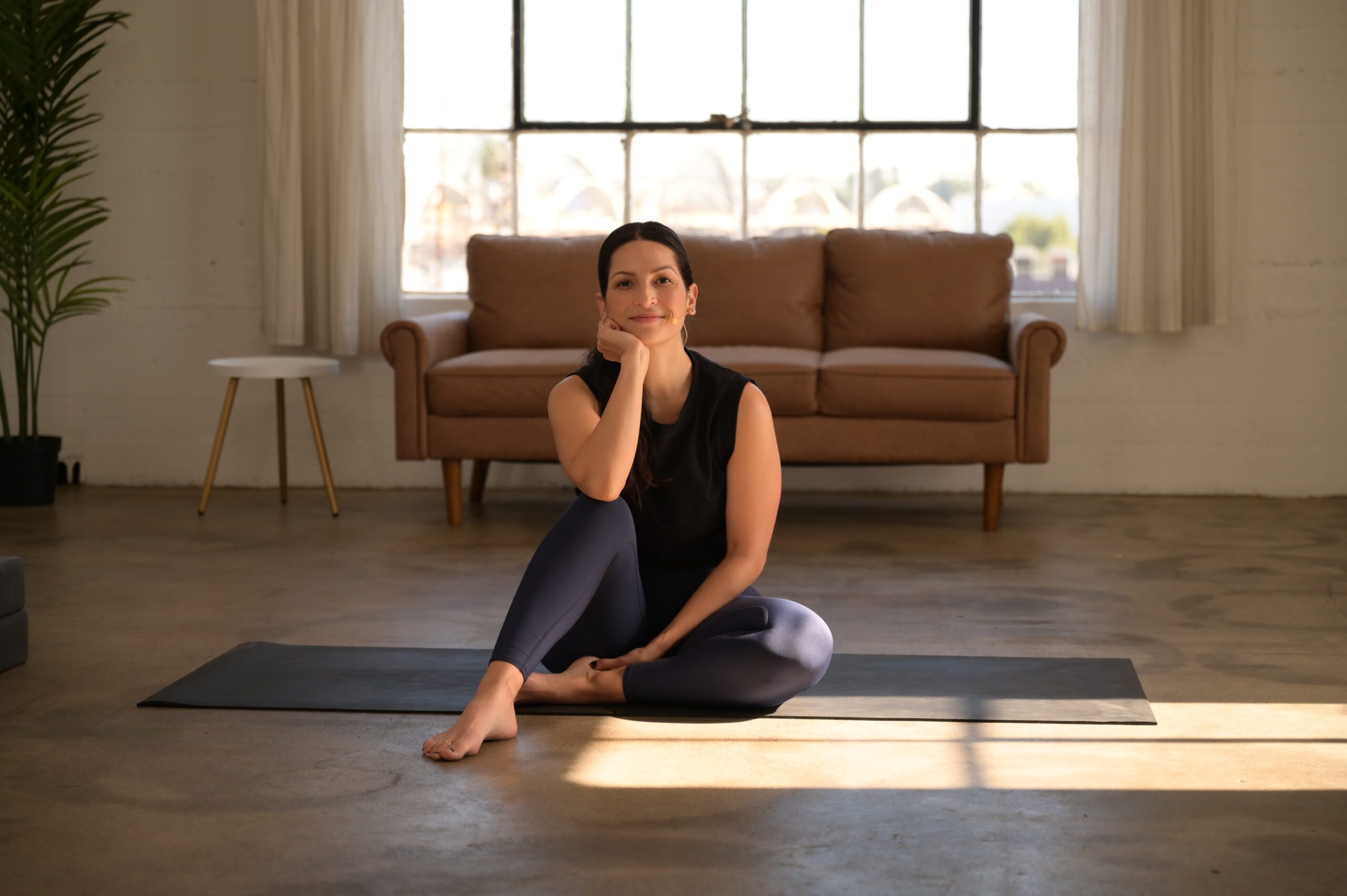3 Lessons On Trauma & Vulnerability From Gabby Bernstein's Latest Book
#1: Attachment style is everything.


Our editors have independently chosen the products listed on this page. If you purchase something mentioned in this article, we may earn a small commission.
April 13, 2022 — 10:28 AM
Gabby Bernstein’s name won’t be new to most spiritual circles. The motivational speaker, author, and host of the Dear Gabby podcast has penned nine books, appeared on countless stages, and received the praise of thought leaders from Deepak Chopra to Oprah. While you’re likely familiar with Bernstein already, her latest book, Happy Days: The Guided Path from Trauma to Profound Freedom and Inner Peace, reveals a new side of her.
The book chronicles some of the most difficult experiences of her life—from postpartum depression to a violent reckoning with repressed memories—and describes how they challenged every tool in her spiritual toolkit. It is a raw and vulnerable book that shows trauma’s ability to hijack the body and mind.
With each page, Bernstein shares the tools that helped her heal from these traumas; but not without first feeling them extremely deeply. “I hope to give you permission to face feelings you’ve buried deep, and give you guidance on how to heal from them,” she writes in the book’s introduction. It’s an important message for a time when so many of us are facing traumas of our own, and Bernstein calls it her greatest spiritual book of all. These are a few of the lessons I’m taking away from the powerful read, and its accompanying resources which include the illuminating "What's Your Attachment Style Quiz."
1. Attachment style is everything.
In one chapter, Bernstein writes about how understanding her attachment style—or the way of relating to others that gets formed in early childhood—helped her be more compassionate with herself and better understand her triggers.
What's your attachment style?
Get your personalized path to successful relationships (including the one with yourself).
There are four attachment styles that psychologists believe shape how we approach love and intimacy as adults. Reading about Bernstein’s experience owning her style (disorganized/fearful-avoidant) made me curious to figure out my own using her online quiz, which highlights three of the most common attachment styles. After answering a few straightforward questions, I was presented with a primer on my attachment style and a list of Bernstein-approved practices for using it to my advantage. It was a helpful resource for dipping my toes into the theory and learning more about how it affects my day-to-day life.
2. Trauma pushes us out of our “window of tolerance.”
By now, most of us know that experiencing any type of trauma (even the so-called “little t” traumas, like a difficult breakup or the loss of a pet) can have real repercussions on our health. But in Happy Days, Bernstein frames this phenomenon in a way I had not heard before.
First coined by Daniel Siegel, M.D. in the late 1990s, the “window of tolerance” describes the range of experiences that we feel equipped to handle. Bernstein writes of how her own trauma shrunk her window, making it more difficult for her to feel safe as she navigated the world and leading to a cascade of health issues.
Most people can probably think of a time when a trauma experience threw off their ability to cope with things that used to feel easy. Bernstein says that the key is sitting with these traumas and feeling their unresolved pain. “You cannot heal what you’re unwilling to see,” she writes.
3. Everyone is navigating their own pain, no matter how happy they seem.
Given that she’s so successful at what she does, it surprised me to read about Bernstein’s anxieties and insecurities about her own work. I’d assumed that someone at her level feels confident in every room they walk into, and hardly ever second-guesses their decisions. Her description of brushes with burnout, insecurity, and depression reminded me that everybody is going through something, no matter how perfect they may appear on the surface. Bernstein has manifested an abundant life, but she’s also felt deeply alone and without a crutch to stand on. To me, this doesn’t make her spiritual journey any less legit; it makes her a human being.
While these were my takeaways from Happy Days and its corresponding “What’s Your Attachment Style” quiz, I suspect that everyone will walk away from them with a different helpful tidbit or practice. I encourage you to sit with it yourself and see what Bernstein’s vulnerability teaches you about your own.
https://www.mindbodygreen.com/articles/gabby-bernstein-happy-days

 JaneWalter
JaneWalter 































